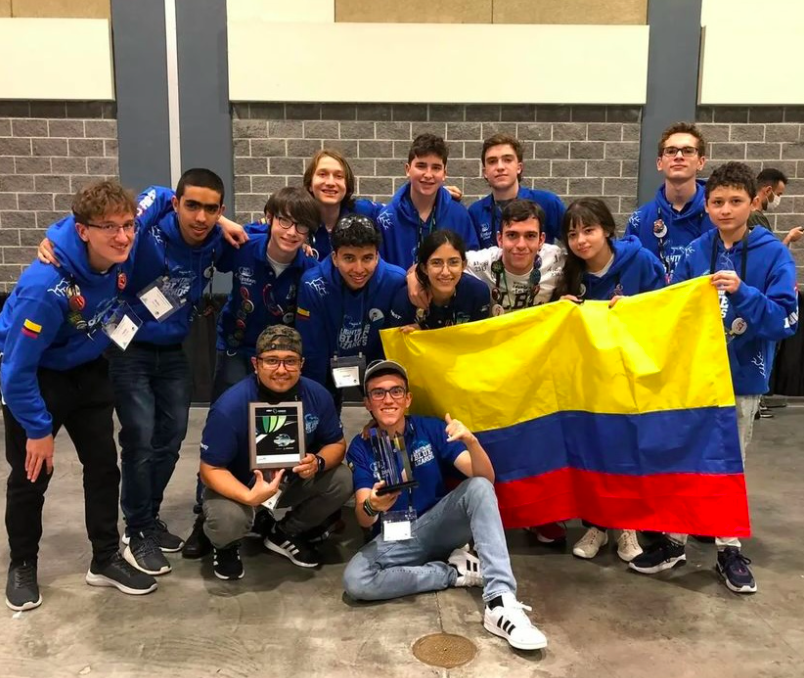Lizards Best Performance Ever in FRC
The Lightning Blue Lizards TCS Robotics Team made history by reaching semi-finals and winning the Entrepreneurship Award in First Robotics Competition (FRC) in Florida from March 3-5.
The event was focused on building a robot capable of picking up balls and then throwing them into two hoops, similar to basketball. The robot then had to hang from a series of monkey bars and pass through them.
“This is our third year in FRC and every year we get better and better so hopefully one day we can go back to the World Championship,” Julian Zuñiga, FRC teacher, said.
The Lizards were the only team representing Colombia in the competition and competed against teams from the Netherlands, Turkey, the United States, and the Dominican Republic.
“The relationship with the other teams was spectacular, the community is very open and cooperative. The other teams are not only willing to lend you the materials and resources but also to teach you how to implement them,” Pablo Arango Escobar, Grade 10, said.
This year, the team was composed of 14 high school students and a mentor, Julian Zuñiga. The team members have different occupations, but they still needed to know everything to actually complete the robot.
“The team is divided into categories such as mechanics and marketing, and electronics and programming, which is the area where I work. However, the entire team knows absolutely everything since the important thing is to learn all robotic techniques,” Arango said.
The Lightning Blue Lizards was characterized by its dedication and discipline. They had 5 weeks to create the robot. Most days the team members stayed late after school working including one session that lasted the whole night.
“It was a process of dedication, communication, and a lot of teamwork. It was actually very fun, we learned a lot,” Pablo Franco Gomez, Grade 10, said.
The machine has electronic mechanisms that use a robot real card. It uses sensors, actuators, gyroscopes, motors, most of them used in industrial robots. It also has a navigation system, which uses accelerometers in order to position itself on the field.
“We used really advanced technology. All of the robot elements have to be programmed. And then finally, we can actually compete,” Zuñiga said.
The trip to the competition in Florida for students and robot were expensive. While students needed to finance their trip, they also received financial aid from TCS and Celsia, a company recognized for supporting this type of innovative project in schools and universities.
“We appreciate a lot the financial aid because it made the entire project possible. It was the most wonderful experience in my life where I learned so much, not only academically but also as a person,” Arango said.




